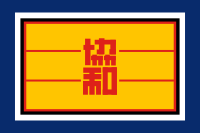Concordia Association
|
Concordia Association of Manchukuo
滿洲國協和會 Mǎnzhōuguó Xiéhehuì Manshū-koku Kyōwakai |
|
|---|---|
 |
|
| Leader | Puyi |
| Founded | 1931 |
| Dissolved | 1945 |
| Headquarters | Manchukuo |
| Ideology |
Monarchism, Nationalism, Authoritarianism, Personalism |
| Political position | Far-right |
The Concordia Association (Chinese: 滿洲國協和會; pinyin: Mǎnzhōuguó Xiéhehuì; Wade–Giles: Man3-chou1-kuo2 Hsieh2-ho-hui4 Japanese Hepburn: Manshū-koku Kyōwakai) was a political party in Manchukuo. Established to promote the ideals of Pan-Asianism and the creation of a multi-ethnic nation-state and to create a structure which would gradually replace military rule over Manchukuo with civilian control, the party was unable to fulfill its early promise, and was eventually subverted into an instrument of totalitarian state-control by the Japanese Kwantung Army.
The name "Concordia Association" came from the concept of the "concord of nationalities" (民族協和 mínzú xiéhe) promoted by the Pan-Asian movement. By granting different peoples or nationalities their communal rights and limited self-determination under a centralized state structure, Manchukuo attempted to present itself as a nation-state in the mode of the Soviet "union of nationalities". Political theorist Tominaga Tadashi, author of Manshū no Minzoku ("Nationalities of Manchuria"), wrote extensively about Soviet policies towards national self-determination. The Concord of Nationalities policy was promoted as a policy that fulfilled the goals of federalism and protected minority rights, while at the same time it strengthened central state control to avoid the separatism that had weakened the old Russian Empire.
...
Wikipedia
